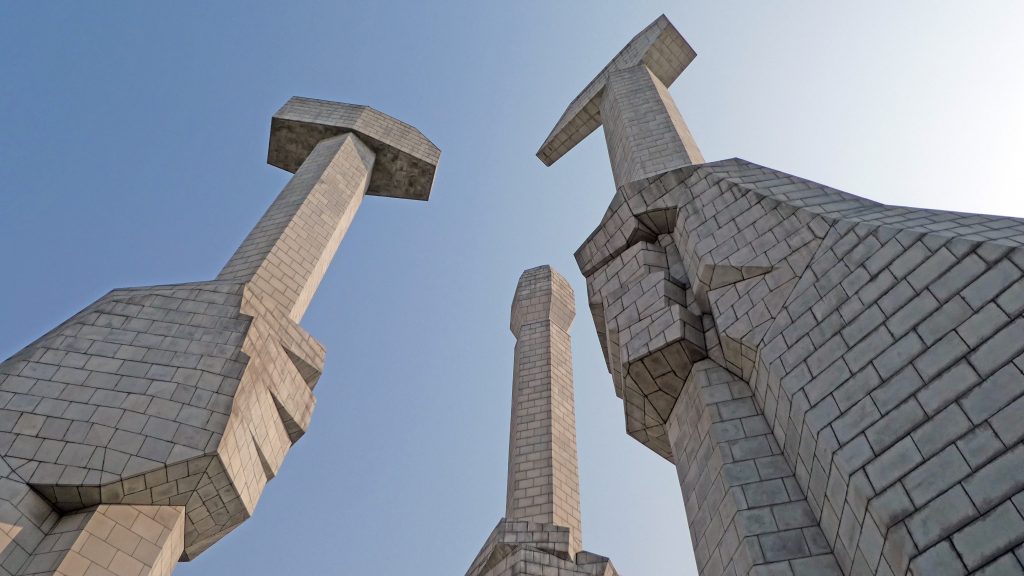Founded on 9 September 1948, the Democratic People’s Republic of Korea (DPRK) is a nation governing the northern half of the Korean peninsula. It has a population of around 25,549,604 and has an estimated total GDP of $40 billion. You will have likely heard about something else it has – that being their “wild & crazy” leader named Kim Jong-Un. But just who is Kim Jong-Un and why has the Kim family stayed in power since the DPRK’s founding?
To begin we must first look at the definition of a monarchy: “A monarchy is a form of government in which a person, the monarch, is head of state for life or until abdication. The political legitimacy and authority of the monarch may vary from restricted and largely symbolic (constitutional monarchy), to fully autocratic (absolute monarchy), and can expand across the domains of the executive, legislative, and judicial.” [1]
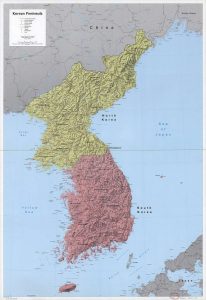
Breaking this down we will start with the term of a monarch. A life of power is not something that has ever been afforded to any leaders of the DPRK. The supreme leader of the DPRK, according to their constitution, is the Chairman of the State Affairs Commission, which is held currently by Kim Jong-Un. [2][3] The Chairman is elected to a term the same as that of the Supreme People’s Assembly (SPA) which, according to their constitution, is five years. Therefore, straight away this debunks the claim of a monarchical regime within the DPRK, because a monarchy cannot exist with the institution of the SPA having control over the electoral process of choosing a Chairman. However, let us dig a little deeper just to be sure.
The SPA is the primary state organ, which is directly elected by the DPRK’s populace. There are currently three different Parties represented within the SPA, and one organisation. During an election to the SPA: “A candidate is decided in a mass meeting led by the Democratic Front for the Reunification of the Fatherland, which also organises the political parties in the DPRK. Citizens run under these parties, or they can run as independents. They are chosen by the people, not by the ‘Party’.” [4] This means that after these mass meetings, the candidate to be put on the ballot for each constituency is chosen, and that is why only one name per constituency appears because they have already been chosen within their constituency. The elections afterwards act to double-check the people’s choice to see if the mass meetings are corrupted or incorrect, which could explain why the elections have such high approval ratings by their citizens. This also shows that manipulation by the state about the people voting yes to a candidate out of fear is incorrect, and the high yes/no ratio is an expression of the truly democratic mass meetings.
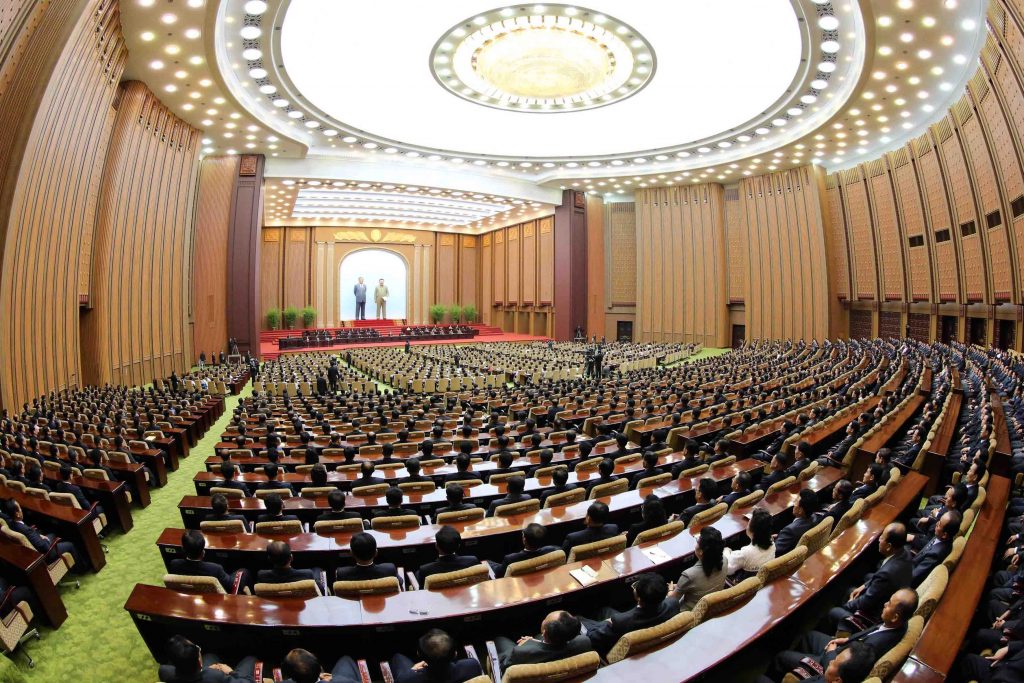
However, the SPA is only the legislative body of the state, and with this title, Kim Jong-Un simply cannot be defined as a monarch. So now we must move to the work of the Cabinet, which is the administrative and executive body of the DPRK, and on which Kim Jong-Un does not hold a position. For the record, if he did hold a position on this, it is an office that has a term length the same as that of the SPA. The Cabinet is also fully accountable to the democratically and directly elected SPA. [2]
The judiciary, on the other hand, is in the hands of the Public Prosecutor’s Office and the Court, which again Kim Jong-Un has no role in, and is chosen by, and accountable to, the democratically elected representatives on the SPA. [2] It is untrue to claim these elections are immune to corruption, but as we can see the people have dominant control over all aspects of governance, which means that the ability to corrupt the system is greatly lessened.
Looking at the other titles held by Kim Jong-Un, we see that he is Chairman of the Workers Party of Korea (WPK) and Supreme Commander of the DPRK Armed Forces (Marshal rank). [3] The WPK is the largest of the ruling parties in the DPRK and enjoys mass support and a majority in the SPA. This affords Kim Jong-Un mass sway over the policy of the WPK, and therefore the nation as a whole. However, this sway works both ways and the final decision comes down to the people on who to elect to the WPK, and Kim Jong-Un himself. This is not much different to some of the more liberal democracies we have here in Western Europe, where the leader of a party holds the most sway, and therefore the leader of the majority party is the most influential.
Moving on to the military, of which Kim Jong-Un is the Supreme Commander of the DPRK Armed Forces. This role came with his position as Chairman of the WPK. This gives him responsibilities that are no different from any other head of state, indeed it could be argued that he is less powerful than some, as he is not the face of the government (that is the role of the Premier, at the time of writing this role belongs to Kim Tok-hun). [5]
The definition of a monarchy continues; “The succession of monarchs is in most cases hereditary, often building dynastic periods.” [1] so to explain this in the context of the DPRK we must look at its past leaders.
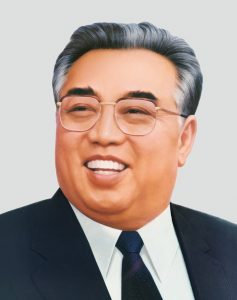
Kim Il-Sung was the first Head of State of the DPRK and its founding father. He occupied the positions of President of the Republic, Premier of the Republic, Secretary-General of the WPK and Supreme Commander of the People’s Army of Korea (generalissimo rank) [3]. As we can see, Kim Il-Sung had much more power than Kim Jong-Un, and therefore direct transition of the same role in government (monarch) does not exist in the DPRK. We have already established the transition of power from the heavily detailed Constitution.
Kim Il-Sung had the position of President of the Republic, which was more of a ceremonial role, that was abolished after his death and given to him ‘eternally’ and symbolically. [3] However, he was the face of the government in being Premier, which was neither passed down to Kim Jong-Il nor Kim Jong-Un after him. [3] The other positions have been covered in the context of Kim Jong-Un.
The next Head of State was Kim Jong-Il, and he held the positions of Chairman of the DPRK National Defence Committee, General Secretary of the WPK and Supreme Commander of the Korean People’s Army (rank of Generalissimo). This shows that he had noticeably less power than his predecessor, and therefore that power is not automatically transferred to a clear cut successor and is instead dispersed among multiple people after the death of each leader so far.
But there is one clear pattern – the leaders are from the same direct bloodline. Now explaining this is where nuance and context are vital and, uncoincidentally, where Western media often abandons all such nuance and context. The Juche Idea created by Kim Il-Sung as the ideology of the WPK, and later DPRK, says that “man is master of the revolution”, however, only with proper leadership can the creative potential of the masses be directed properly towards the revolutionary goal. [6] This shows why leaders almost appear larger than life because in modern Korean culture they are respected as having much more significance to the state of things than they do in the West. Perhaps this is also influenced by the fact that the DPRK’s government acts revolutionarily, whereas in the UK at least, our government acts in a reactionary manner.
This idea likely originated from the fact that in Korea, the ‘leader’ is seen as very important and respected figure. This rationale can be traced back to the philosopher Confucius, who is the pillar of most East Asian nations, or at least he used to be in recent history. By this I mean, as liberal philosophy dominates the West, Confucian philosophy dominates the way of thinking in the Far East. Confucius himself wrote on leaders and how they should be honourable and always humble if they are to earn the deference of the people. This went on to be the model for leaders in the East and the people came to revere the position more (depending on the success of its application) than what happens here in the West.
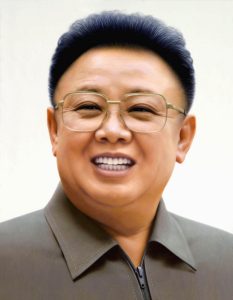
For more context on the history of the Kim family, Kim Sung-Joo, later named Kim Il-Sung, was a revolutionary and a national hero, who led the Korean people against the Japanese and American imperialists and won himself masses of support from the entirety of the Korean people. He guided the ship of state, at the will of the people, until he died in 1994. [3]
He had a son named Kim Jong-Il who had, for many years prior, been embarking on a political career in his own right and had won positions across government for his dedication and impressive competence for leadership. He only came to power four years after the death of his father, who he never publicly referred to as such and always called him “leader”. On top of all this Kim Jong-Il came to power in a time of great crisis in the DPRK as the socialist camp had collapsed and those few who remained were scrambling to survive. Furthermore, the North Koreans found themselves under a new economic offensive by the American imperialists in terms of new sanctions. This would have led people to observe the young Kim in the context of both his impressive credentials and in light of him being the son of the great leader as being the natural candidate to fend off this new assault. This is natural as in all democracies to people look to who they think of as the best leader and is irrespective of the parental connection between the two. It would be a lie however to deny any correlation.
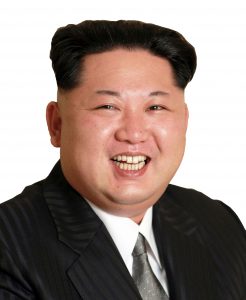
Finally comes Kim Jong-Un who built himself an impressive portfolio of roles and like Kim Jong-Il (his father) he did not come to power immediately after his death. This was because their constitution does not allow for a monarchy, and instead, it places power in the hands of the Korean people to decide.
After all of this, I would argue that it is clear that the DPRK is not a monarchy and only a dictatorship in one sense – it is a Dictatorship of the Proletariat. While criticism can, and should, still be made to developing Socialist countries, it is the nature and character of criticism that is more often the problem. If it is a regurgitation of a supposed “fact”, allegation, or rumour, with no independent investigation made, it is more often than not blind belief in what capitalist media sources are proclaiming. The dehumanisation of those in the East – to view them as something of an “other” and not equal to us in the West is a common trope in the media. But no more is it applied as blatantly as with its view of the DPRK as a “rogue state” with its “tyrannical” and “warmongering” leader.
We, as Communists, must do all we can to combat this misinformation campaign by the West to show the truth of socialist democracy, not only in the Democratic People’s Republic of Korea, but in all governments around the world wherever the red flag flies high.
Fraternal greetings and solidarity to the Socialist Patriotic Youth League of the Democratic People’s Republic of Korea.
Sources:

